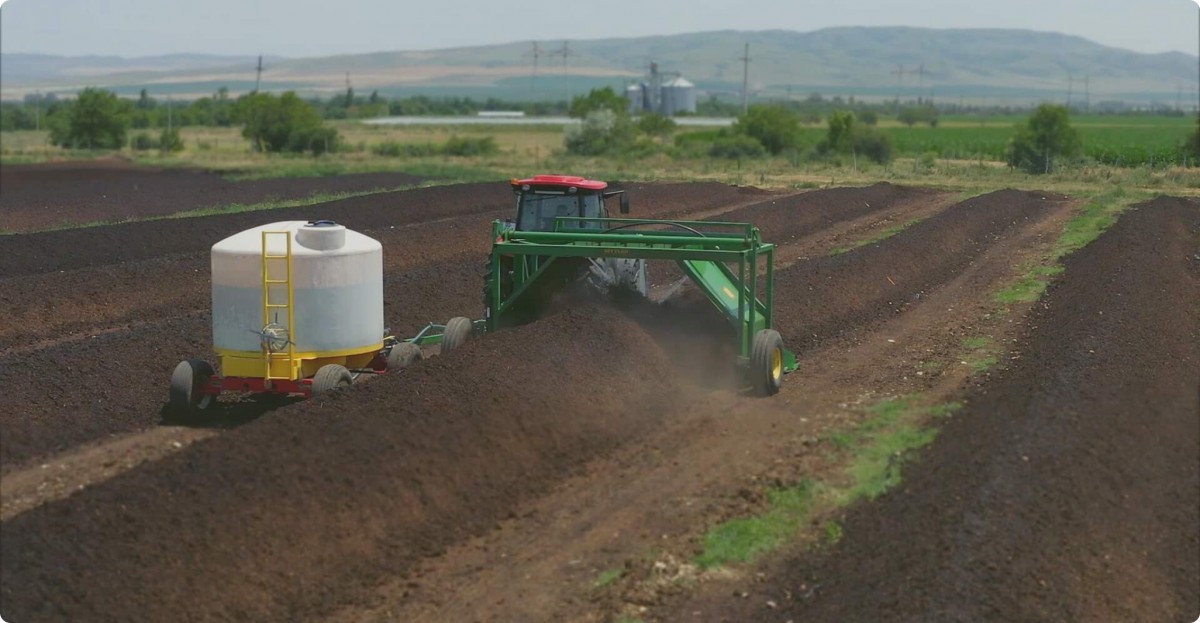Use of compost for Industrial Farming
Increasing yield in industrial farming is mostly dependent on the content of organic matter In soil.
Compost is a slow-release, long-lasting organic fertilizer. By using compost, a farmer is increasing soil productivity for at least 3-4 years.
Planting and transplanting, orchard/vineyard planting
When planting or transplanting in the open ground fill the hole with the mix of soil and compost – 1 part of compost to 2 parts of native soil.
Vineyard
Apply around 12 to 18 tons of compost per hectare. For the next 2-3 years only half the amount mentioned above is necessary, then re-apply 12-18 tons per 1 hectare.
Compost can be applied at the bases of plants or between rows. After application incorporate compost into soil.
Fruit, hazelnut, almond and citrus trees
Compost must be applied at a rate of 3 to 4 kg. per plant. After applying compost around the base of the plant, incorporate compost into the soil.
Wheat, corn
In case of corn and wheat 15 tons of compost must be applied on average. Compost should be applied before tillage with compost/manure spreader.
Vegetables
Following rates are suitable for certain vegetable crops:
• Asparagus - 7-8 tons of compost per hectare
• Tomatoes - 8-10 tons of compost per hectare
• Carrots - 9-12 tons of compost per hectare
• Onions - 10-15 tons of compost per hectare
• Cauliflower - 12-20 tons of compost per hectare
Berries
In case of berries apply 10-15 tons of compost per hectare.
Potatoes
10-15 tons of compost should be applied per hectare. Compost must be applied before tillage.




